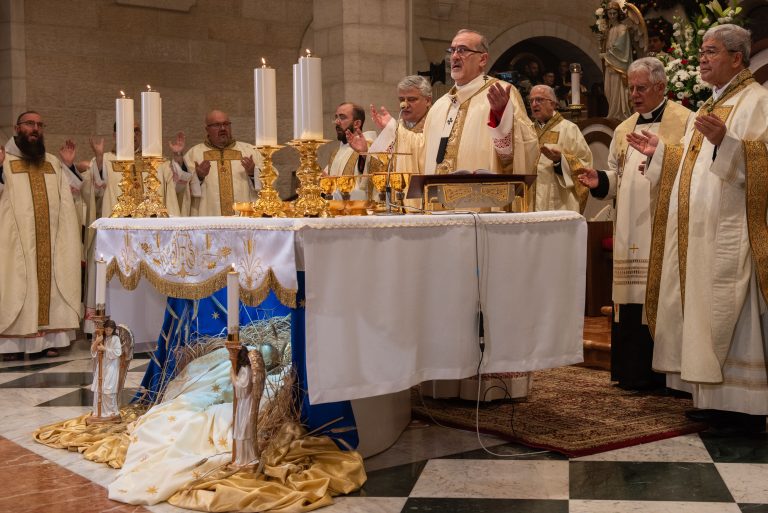“It seems to us today that there is no place for Christmas,” Pizzaballa said in his speech. homily. “The sound of weapons, the tears of children, the suffering of refugees, the cry of the poor, the sorrow of so many grieving families, seem to make our songs lose harmony.”
But it is in the darkness of this world that the Church proclaims Christmas again, he said.
“Every evening, God always finds room for his Christmas. Even for us, here, today: God can make room even in the hardest of hearts,” Pizzaballa said.

Pizzaballa invited everyone “to multiply our actions that speak of fraternity, peace, acceptance, forgiveness and reconciliation. Say yes to good, yes to peace, yes to dialogue and yes to others. This should not be a rhetorical exercise but a responsible commitment. It must make space, not occupy it; find a place for others and not refuse them one.
The church was filled with local Christians who this year replaced pilgrims who cannot be in Bethlehem right now because of the war between Israel and Hamas.
“Thank you for being here,” the patriarch said to the faithful present.
After his homily, he sang a song in Arabic called “Jesus is born, Hallelujah” and invited the congregation to join him. Because even in darkness, “we are children of the Light,” he says. “Jesus is with us; he is our joy. This is why we are not afraid! We are never afraid!

At the end of the mass, the patriarch went to the Grotto of the Nativity, cradling the statue of the Child Jesus, unveiled by the Franciscan friars of the Custody of the Holy Land during the singing of the Gloria. Pizzaballa placed it on the silver star that marks the birthplace of Jesus.
From there, the Gospel of the Nativity according to Luke was proclaimed and the statue of the Child Jesus was placed in the niche, traditionally identified as the manger.
(Story continues below)



